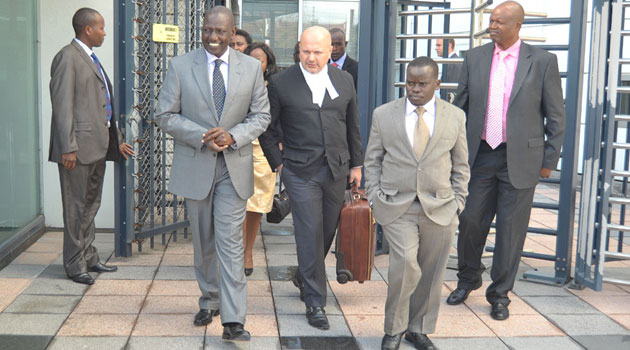
Commenting on the ruling, Mark Kersten, a researcher the Munk School of Global Affairs at the University of Toronto described Ruto’s case as being “on life support” adding that it may never recover/FILE
Commenting on the ruling Mark Kersten, a researcher the Munk School of Global Affairs at the University of Toronto said Ruto’s case “is now on life support” and may never recover.
Aaron Matta, from The Hague Institute for Global Justice stated that the ruling will have the potential effect of weakening the prosecution’s case and increase the odds of Ruto and Sang eventually walking free.
In reversing the decision to use the testimony, the judges unanimously agreed that the Trial Chamber had disadvantaged the accused by allowing the prosecution to use prior recorded statements of the five witnesses as the accused were denied their right to cross-examine them.
The judges based their ruling on the rights of the accused and the applicability of the amended rule in an active case to arrive at their decision, which will heavily impact negatively the prosecutor’s case.
ICC Prosecutor Fatou Bensouda in her request seeking to have evidence of the recanting witnesses, said her case against DP Ruto and Sang would be weak without the ‘significant incriminating’ evidence of the witnesses in question.
READ: Evidence to incriminate Ruto, Sang inadequate – Bensouda
The focus has now shifts to the major ruling which will determine if the case against Ruto and Sang will end at the prosecutor’s level.
Ruto and Sang, face three charges of crimes against humanity namely murder, forcible deportation and persecution arising out of Kenya’s disputed elections in December 2007.
Prosecutors say more than 1,300 people died and some 600,000 others were left homeless in Kenya’s worst wave of violence since independence from Britain in 1963.
Ruto and Sang deny the charges and Ruto’s lawyers have further argued there was no proof that he was behind the bloodshed that rocked the powerful east African nation once seen as a regional beacon of stability.
Their trial opened in September 2013.








































